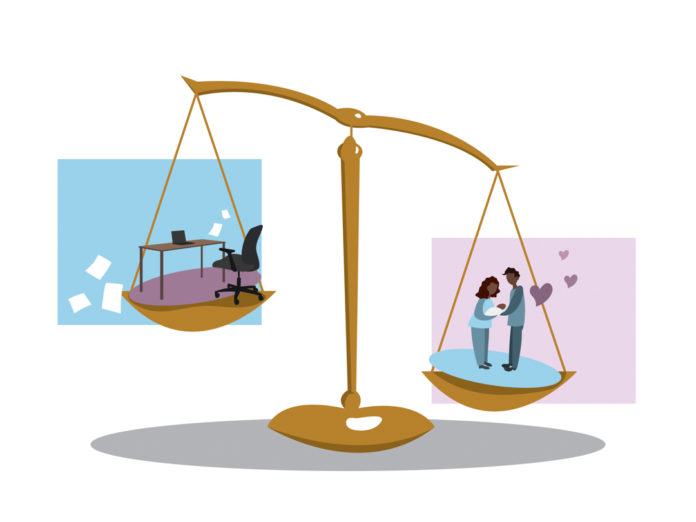As our schedules have been heavily impacted by the COVID-19 pandemic, it has forced us to question if our routines truly optimize our productivity and mental well-being. With mental health issues increasing throughout the pandemic, the slow return to full-time work or school can further cripple our emotional stability. Living in a society where success is idealized as a product of tireless work and long hours only further aids in these external pressures by praising those who take on extra projects in their spare time and who are utterly devoted to their work. Sure, this is viewed as a way to fast-track accomplishments and progress our careers, but in many cases, taking a break to rest or prioritize other aspects of life is shamed as being unproductive or lazy. Perhaps the problem stems from this imbalanced work/life integration we all know too well. So, I propose this question: should the 40-hour workweek be revised? I think that in order to be more emotionally satisfied in life and more productive in our work, it absolutely needs to be reexamined.
I believe that it is the idealization of a “9-5” that may be the real problem. By emphasizing the importance of work, we deemphasize the importance of everything else in life. In turn, we devalue our own mental well-being and lose our drive for career satisfaction in the process. If you’re anything like me, by the time the weekend comes to an end I am hardly recharged or motivated to dive into a productive Monday. Although many of us strive to find the perfect work/life balance, we may often find ourselves sacrificing more time to work than spending time with family or practicing self-care. Feeling burnt out, uninspired, and downright tired all have an effect on how productive we are and how satisfied we feel with our work. So, what’s the solution? Are we simply doomed to live in an endless cycle of overworked, unproductive, unsatisfactory working hours?
Two companies in New Zealand conducted studies that challenged the rigid 40-hour workweek, and Canadians should consider taking inspiration from them. Unilever, a popular parent company responsible for overseeing worldwide brands such as Dove, Ben & Jerry’s, and AXE, revised employee’s schedules to a four-day workweek in order to see if an improved work/life balance would have an effect on work performance and productivity levels. Unilever was inspired by the success of Perpetual Guardian’s study which implemented the same policy into their workplace. At Perpetual Guardian, they advocated for a weekly “rest day” and extended “life” integration in order to adhere to a more balanced and sustainable workplace. It encouraged employees to organize their schedules more efficiently, all while building their engagement and satisfaction with their personal life. Not surprisingly, Perpetual saw an incredible improvement in their employee’s mental well-being and the company benefited as well through increased productivity and company engagement.
I mean, c’mon, just think about how amazing it would be to have a three-day long weekend, every weekend! Not only would this give employees a greater opportunity to manage their personal lives and integrate longer periods of rest into their days off, but it would also allow them to experience the productivity benefits of shorter deadlines and delay any opportunities for procrastination. Take it from a professional procrastinator: this makes sense to me. If I am given two weeks to complete an assignment I will gladly take those two weeks to slowly complete it. I will likely (and am almost guaranteed to) get sidetracked in the process, prioritize something unrelated, guiltily online shop, or blankly stare at the page getting frustrated at my inability to focus. However, if I am given the same task due within a four-day period, I will strategically organize my time to complete it in a shorter period of time. I will be more focused and more productive in this short time frame because the deadline is fast approaching, and I am more motivated to manage my time efficiently.
This is exactly what Perpetual found, and I am completely on board. As Perpetual Guardian concluded, by improving their employee’s work/life balance, company productivity levels improved by 20 percent. They continue to proudly adhere to their revised workweeks and advocate the 4-Day Week Global platform which encourages employers to seek out shorter workweeks. COVID-19 has already shifted many of our ideas around what “normal” life is, so why not seek out ways to improve our work/life balance? As we move forward into face-to-face environments again, we should pause and consider the opportunity we have to revise our routines. Canada may be slow in adopting a four-day workweek; in the meantime, be aware of how you can create a more balanced work/life routine. Make it a habit to integrate more “life” into your life! It may very well be your building blocks to thrive emotionally, independently, and collaboratively.
Image: Brielle Quon/The Cascade
Sydney is a BA English major, creative writing student, who has been a content contributor for The Cascade and is now the Opinion editor. In 7th grade, she won $100 in a writing contest but hasn’t made an earning from writing since. In the meantime, she is hoping that her half-written novels will write themselves, be published, and help pay the bills.


